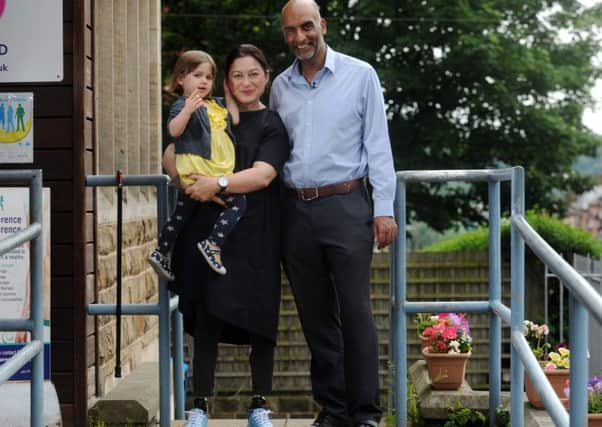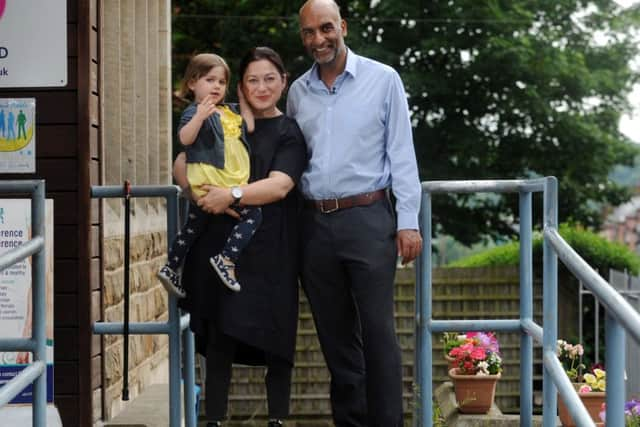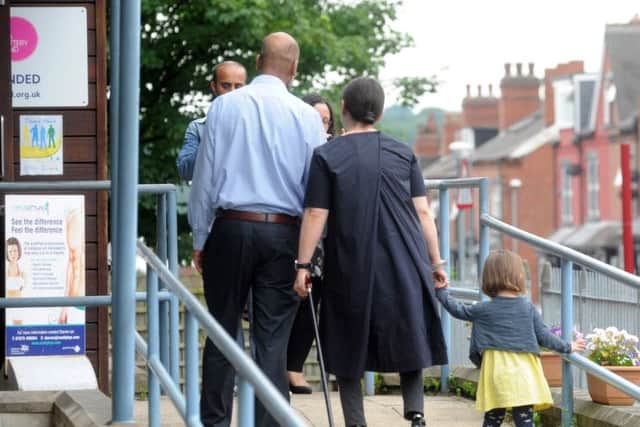Video: Angry but not bitter, 7/7 survivor Gill Hicks revisits Beeston


When four young men – three of them with links to Leeds – detonated a series of bombs on the London transport system on July 7, 2005, they took away 52 innocent lives as well as their own. But their actions also set in motion a new, dark period in our nation’s history, the repercussions of which – it can be argued – continue to be felt today.
On Tuesday, the country will come together on the 10th anniversary of the London bombings to remember the victims, with a series of commemorative events in Leeds and in London.
Advertisement
Hide AdAdvertisement
Hide AdAnd people in one inner city suburb, Beeston, will reflect on the way their quiet community became forever linked to Britain’s worst ever tragedy on home soil.


The journey of healing and reconciliation has seen some real success in Beeston, and poignancy in the form of a visit this week from Gill Hicks, who lost her legs in the 7/7 attacks but is now a peace campaigner. Hanif Malik, chief executive of the Hamara Healthy Living Centre – a popular community hub running various youth and public health and education initiatives – remembers all too acutely the events of 7/7 and its immediate aftermath.
“The day was a Thursday. At that time there was just the huge shock, but we didn’t know of the Leeds links,” he recalls.
“But then on July 12, there were raids locally by police.
“I was driving in to work and was listening to Five Live because I am a big sports fan. They broke their coverage to go to the live update.


Advertisement
Hide AdAdvertisement
Hide Ad“They said some arrests had been made in West Yorkshire and I immediately thought ‘Bradford’.
“As I approached work I saw the road cordoned off. But even at that stage I was thinking how could it possibly be linked to Beeston?
“And that was probably the beginning of the most surreal and traumatic journey I have ever had to undertake in my life time in a professional capacity.”
It later emerged that two of the four bombers – Shahzad Tanweer and Mohammed Siddique Khan – had lived in Beeston, and had used the community centre’s services. This led to some intense – and highly misplaced – scrutiny of both the centre and its management.
Advertisement
Hide AdAdvertisement
Hide AdIn the weeks and months that followed, Beeston became a hub of investigative activity. It was an intensely traumatic period for locals, with the heightened national and global media intrusion becoming a particularly sore issue.
Now, 10 years later, Beeston remains “a fairly typical, multicultural inner city community” according to Mr Malik, and the journey to reconciliation has come a long way.
But although the scrutiny “calmed down”, it took a few years, and he says the locality was “tarnished forever” by association.
Mr Malik also talks of the dignified silence of the families of the perpetrators – and believes that perhaps now, 10 years on, they may be able to grieve for their sons.
Advertisement
Hide AdAdvertisement
Hide Ad“Quite often what gets forgotten in the narrative that we read is that they, too, are victims of that day’s atrocities and are grieving families who have never really been able to draw a line under all of this.”
Looking forward to Tuesday’s national commemoration, he is keen to stress that the community of Beeston will stand united with the nation.
“The community has moved on,” he says. “But we should always remember what occurred, as we should any atrocity whether it be in the UK or events elsewhere in the world.
“This community is so much more than just three individuals. As huge as it was in scale, it should not be allowed to take away from the huge amount of good work that happens here.”
Victim who dedicated life to being ambassador for peace
Advertisement
Hide AdAdvertisement
Hide AdGill Hicks lost both her legs as a result of the London bombings on July 7, 2005.
She was standing near Jermaine Lindsay in a train on the Piccadilly line between King’s Cross and Russell Square stations when he detonated a bomb, killing himself and 26 others.
She has since dedicated her life to becoming a global ambassador for peace.
To mark the 10th anniversary of 7/7, Ms Hicks is undertaking 10 challenges to raise money for different charities. She says the tasks – which include abseiling, bungee jumping and swimming with sharks – are “designed to captivate, motivate and encourage people to think about how we each can make a significant difference and ‘DO’ peace”.
Advertisement
Hide AdAdvertisement
Hide AdMs Hicks first visited Leeds – home to three of the London bombers – in 2008, and returned this week to meet fellow campaigners and high-profile members of the city’s Muslim community.
“Leeds wasn’t the reason why I lost my legs,” she told The Yorkshire Post.
“I am absolutely of the firm belief that what happened to me and to other victims was not the responsibility or the blame of people in Leeds. That is why it is so important to be here, to be united together in the face of violent extremism, and in defiance of people who choose to take that path.
“We are ultimately living proof that those tactics don’t work and that humanity will prevail.”
READ MORE...
Advertisement
Hide AdAdvertisement
Hide Ad